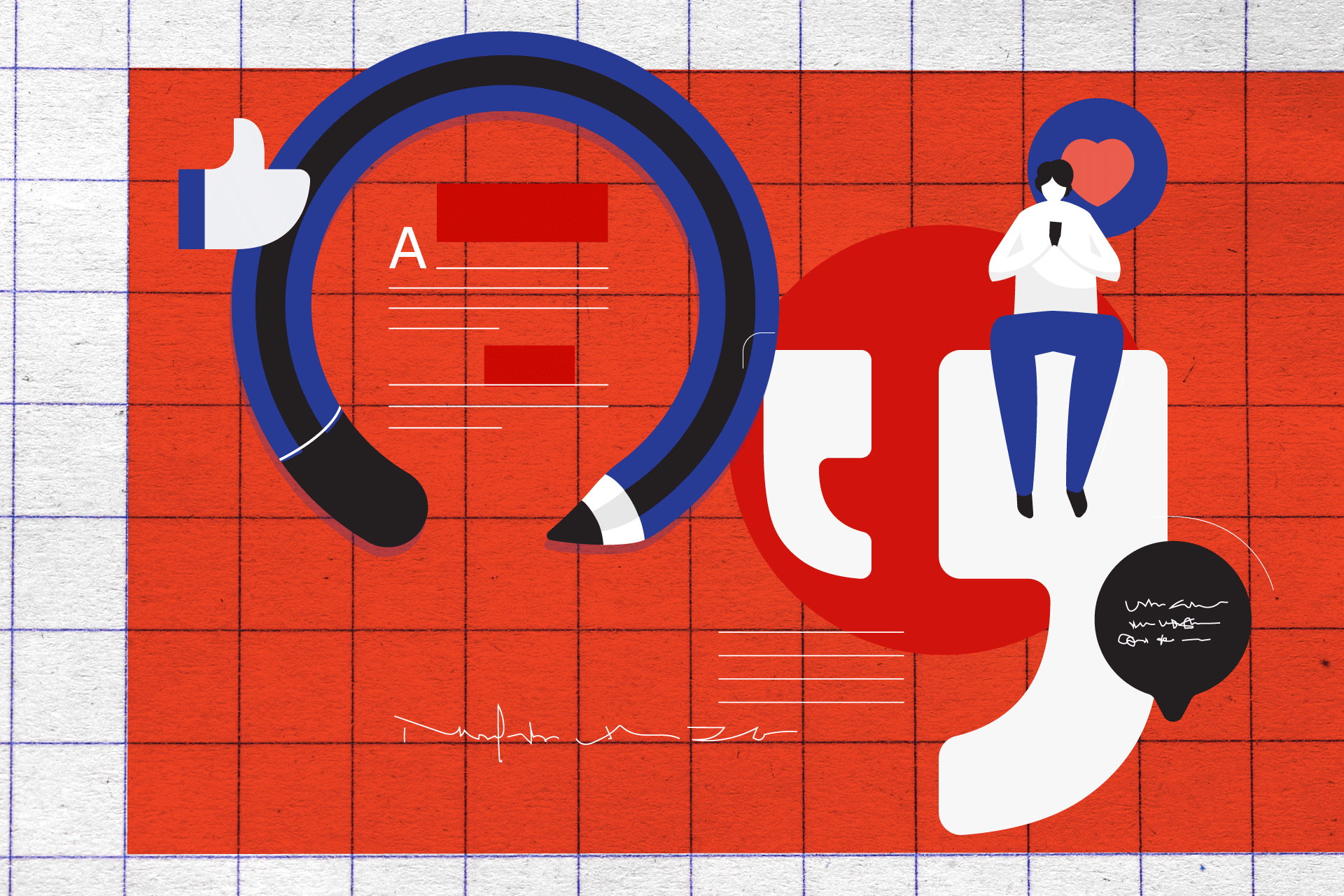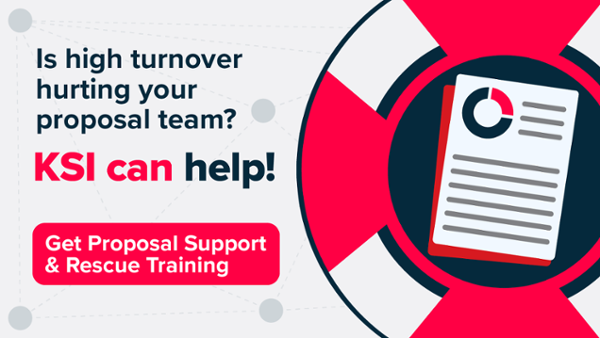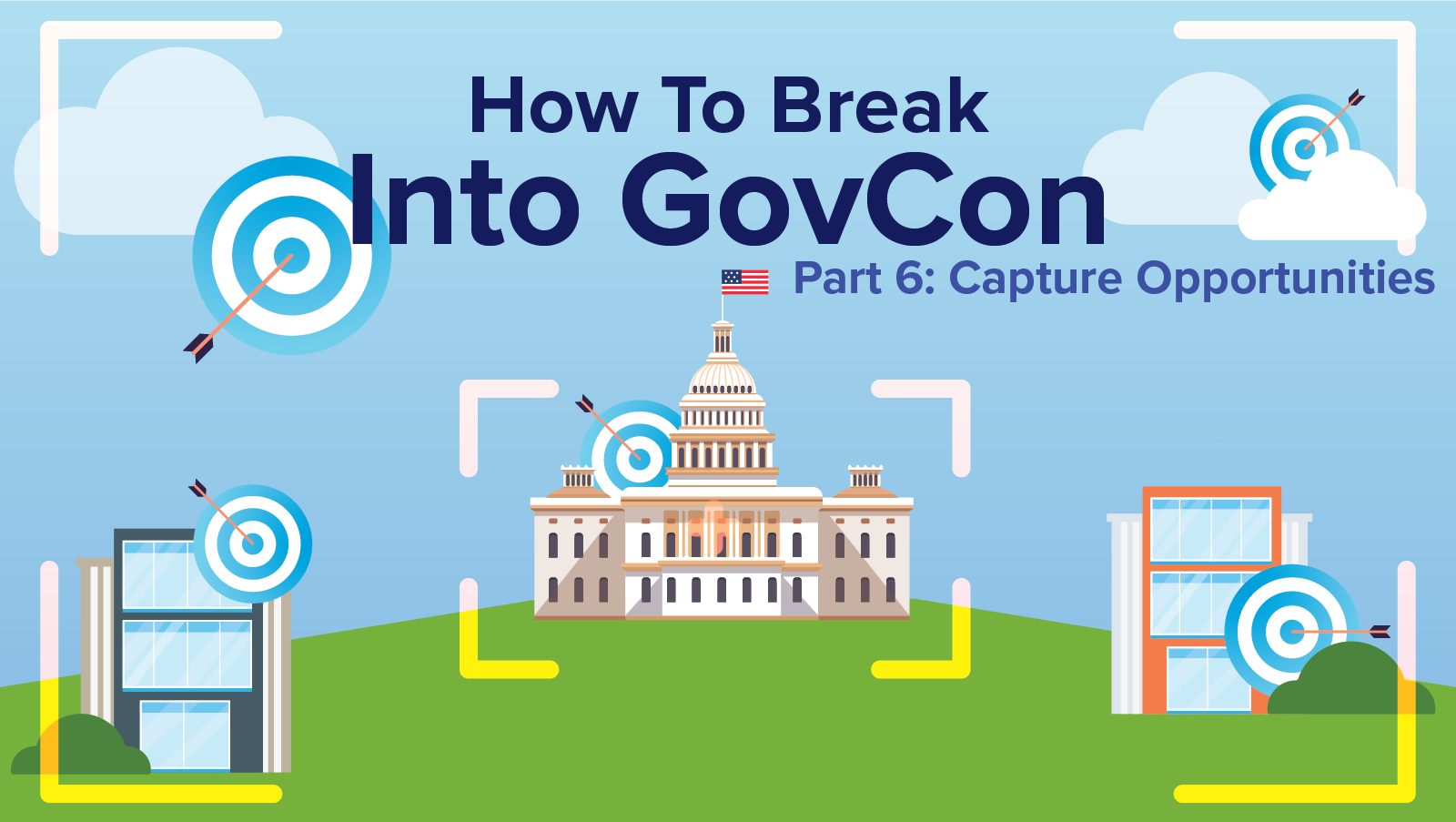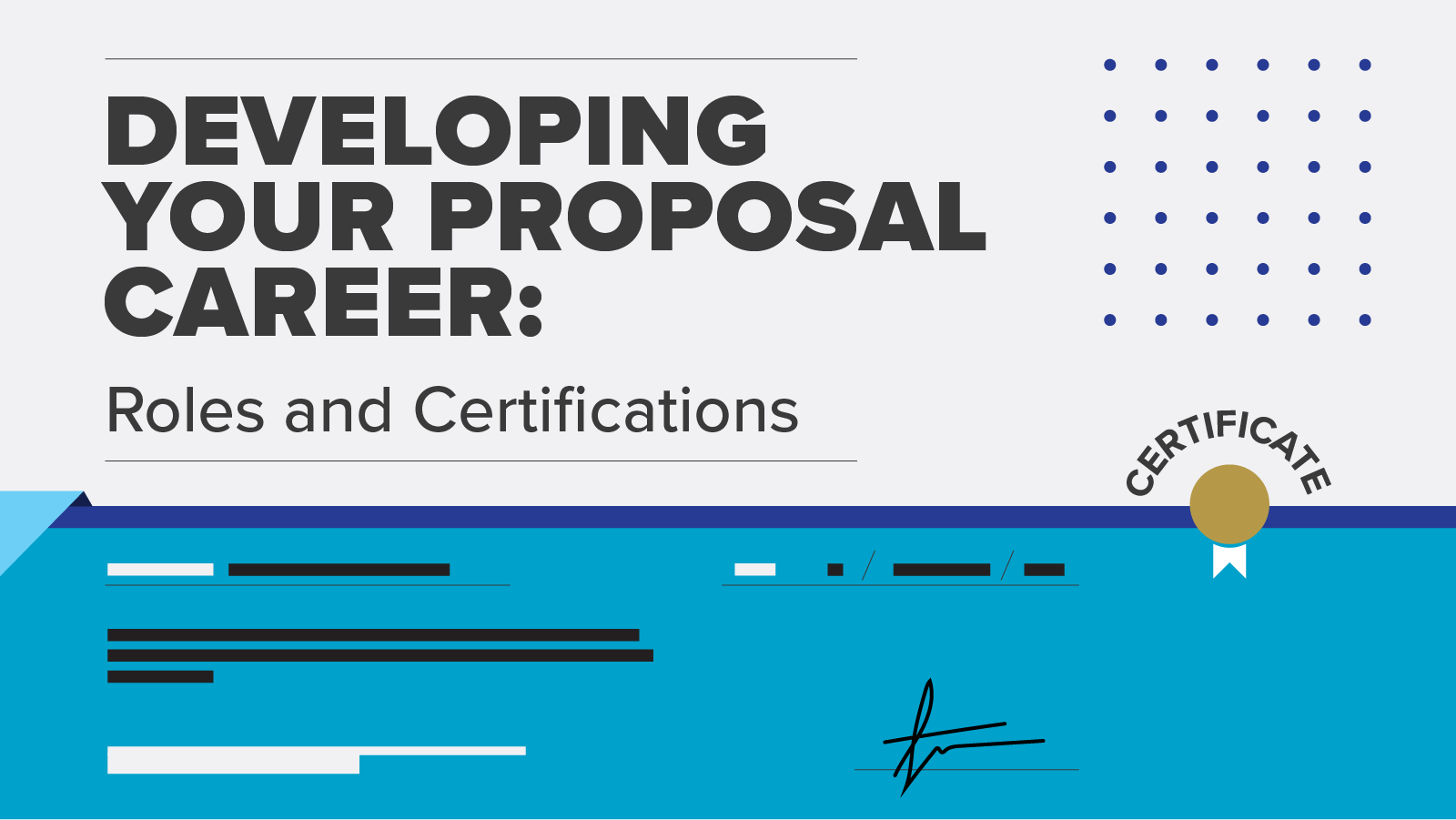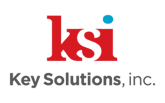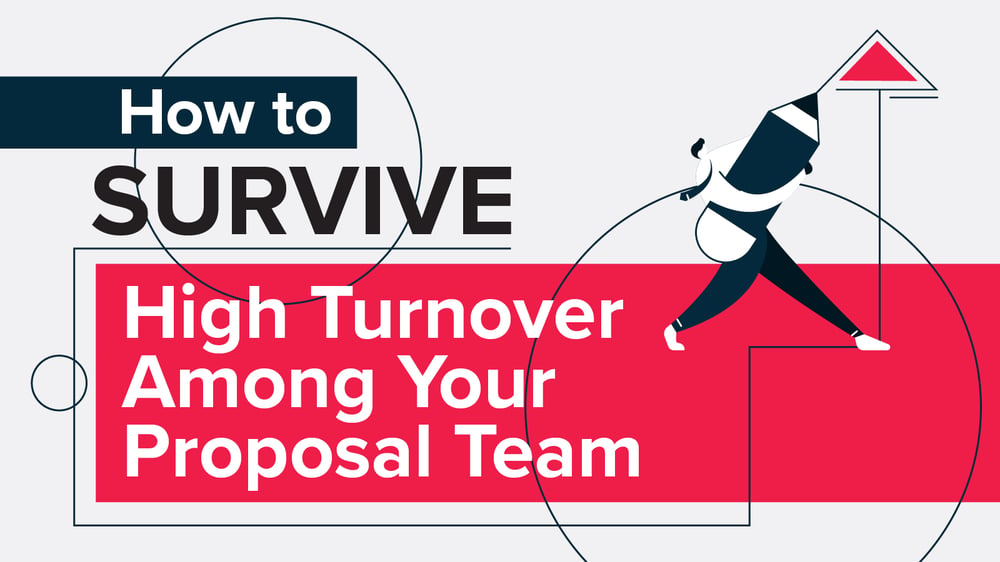
The Great Resignation. The Big Quit. The Great Reshuffle.
Whatever you want to call it, it’s clear that most industries are suffering from high rates of turnover. In the wake of the pandemic, the way we work has shifted. Employees across the globe traded cubicles and break rooms for home offices and kitchens. Company outings turned into virtual happy hours, and brief moments of silence were often followed by, “Sorry; I was on mute.” The virtual workplace expanded, providing opportunities for many employees that did not exist before. Location has become less of a factor when looking for jobs, and many professionals are still taking advantage of that.
While most industries are suffering from a high rate of turnover, the proposal industry is being hit especially hard due to the unpredictable nature of solicitation releases. In many cases, a company’s proposal team is already spread thin, so having a team member leave days before a short-turn opportunity drops can be tough to navigate and have a negative impact on the quality of your response and the quality of life of your proposal team.
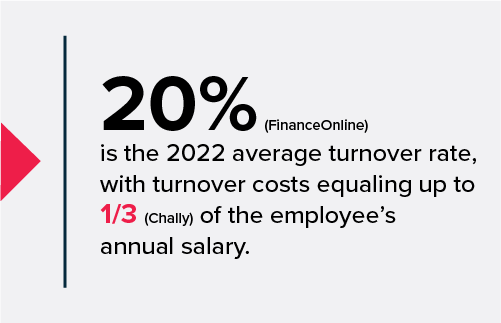
Every company and proposal team is different, and, unfortunately, there is no one-size-fits-all approach to dealing with turnover. Each company will need to explore all of its options and choose the ones that will result in the least amount of disruption. In this brief guide, we will provide some options proposal teams have when it comes to mitigating the negative effects of turnover and the advantages and disadvantages of each.
Before we discuss your options, it’s important to understand the three phases of turnover recovery, as illustrated below.
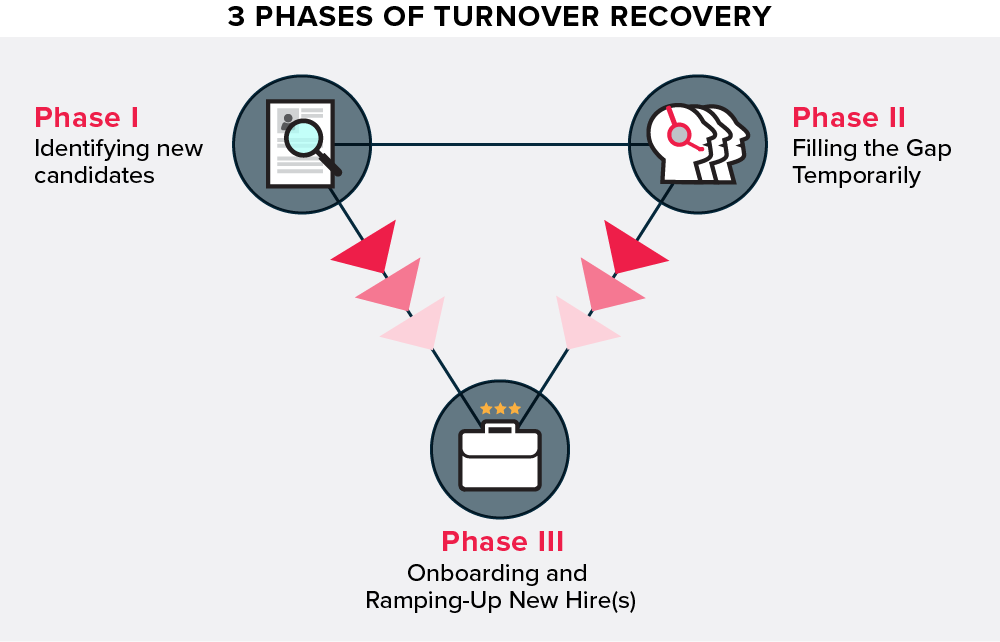
It’s important to note that Phase I and Phase II should be happening in tandem. While scrambling to find a replacement is often the first step companies take, you must be able to quickly fill the responsibilities of the employee who left, or your current team and the quality of their work will suffer.
Phase I: Identifying New Candidates
Although Phase I and II should happen simultaneously, you should be looking to hire a replacement as soon as possible. When it comes to finding a new candidate, there are a few options, as shown in Figure 1 below.
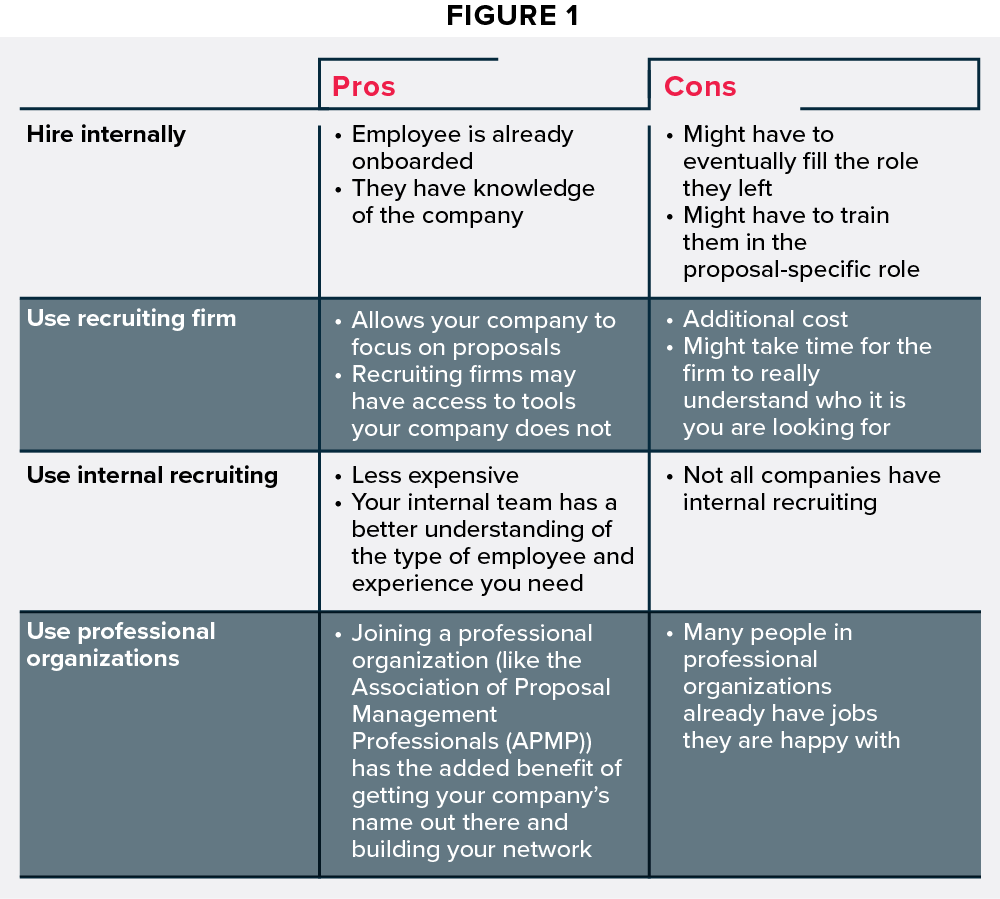
Phase II: Filling the Gap Temporarily
The world of proposals is hectic, and government deadlines will not wait for you to find a new hire. Therefore, you must be ready to fill in the gaps while you look for a suitable replacement. Often, this is the most painful part of losing a team member, especially if your team is already busy. Figure 2 demonstrates some common ways companies will pick up the slack while they search for a suitable replacement.
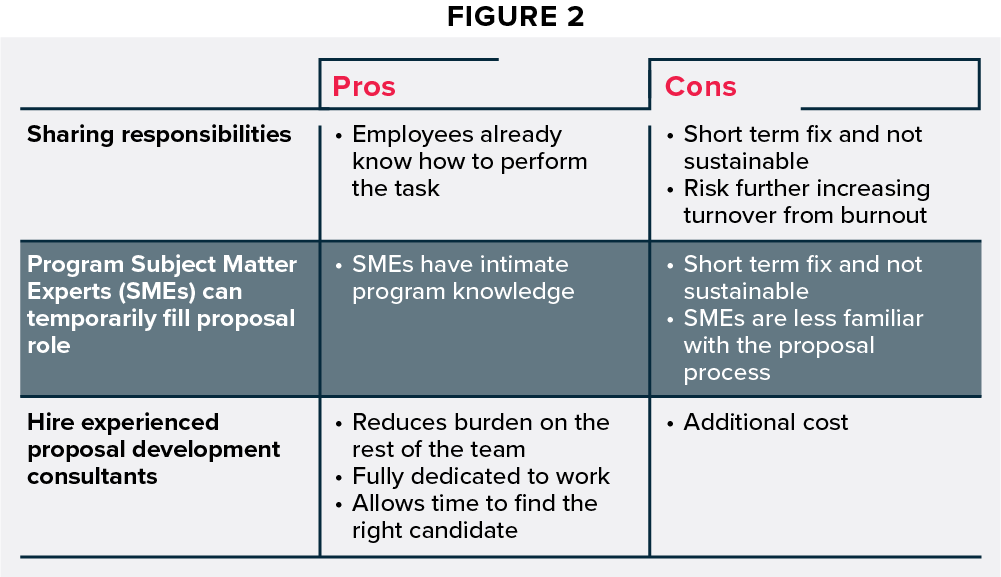
Suppose you choose to split responsibilities across the team or bring in a subject matter expert (SME) from the program to fill the role temporarily. In that case, it is crucial that you constantly monitor the health of the team and maintain clear communication with the Proposal Manager/Opportunity Lead. Without bringing on additional resources, it is easy for other pieces of the process to suffer.
Phase III: Onboarding and Ramping-up New Hire(s)
Once you’ve identified and hired a replacement, you will need to find the best way to train and onboard them as quickly as possible. Unless you bring in consultants to help carry some of the weight, your proposal team will likely be feeling the strain caused by Phase II at this point. Figure 3 offers some of the most common ways proposal teams make sure new hires are ready to join their team.
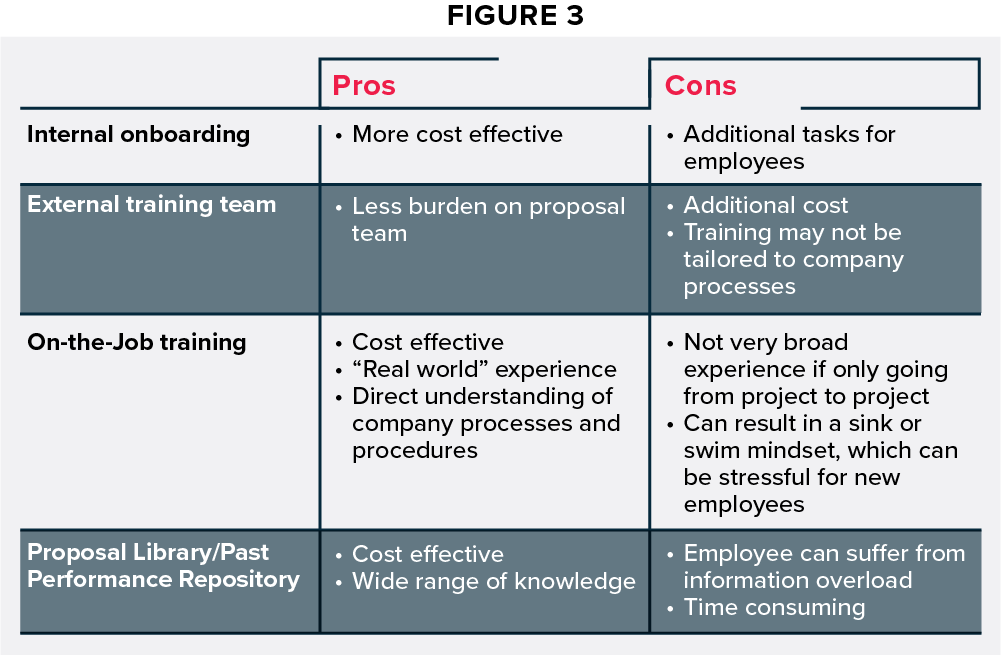
While providing new hires with access to Proposal Libraries/Past Performance Repositories is an effective option, it is always a good idea to create a training plan for the dissemination of the information. This plan could include providing them with only a few write-ups to focus on at a time, or it could include having them work on updating the content. Assigning write-ups to new hires is a popular option because it teaches them about the company, lets them practice their proposal writing, and has the added benefit of strengthening/updating your company’s Proposal Library.
When training new hires, you can also use a combination of the above options. For example, you could kick their training off by hiring an external training team. Once they learn the overall proposal process and industry best practices, you could provide them with a few write-ups to get them familiar with your company specifically. Then, with their solid foundational knowledge of the proposal process combined with their familiarity with your company’s history/writing style, you could have them shadow a senior member of the team to give them some real-world experience.
The proposal development industry is already stressful enough. Whichever training method, or combination of training methods, you choose, be sure not to overload your new hire(s). Immediately throwing someone who is brand new to the world of proposals into a fast-paced on-the-job training or giving them access to your entire Proposal Library could backfire and bring you back to Phase I.
Final Thoughts
As an employer, effectively handling turnover with the least amount of disruption to your output, employees, and bottom line is tough. While there may not be a universal playbook to consult every time an employee leaves, there are things you can do to position yourself to make it to the other side relatively unscathed.
By carefully evaluating each option and conducting a cost-benefit analysis of each, you can position your company to survive “The Great Resignation.”


